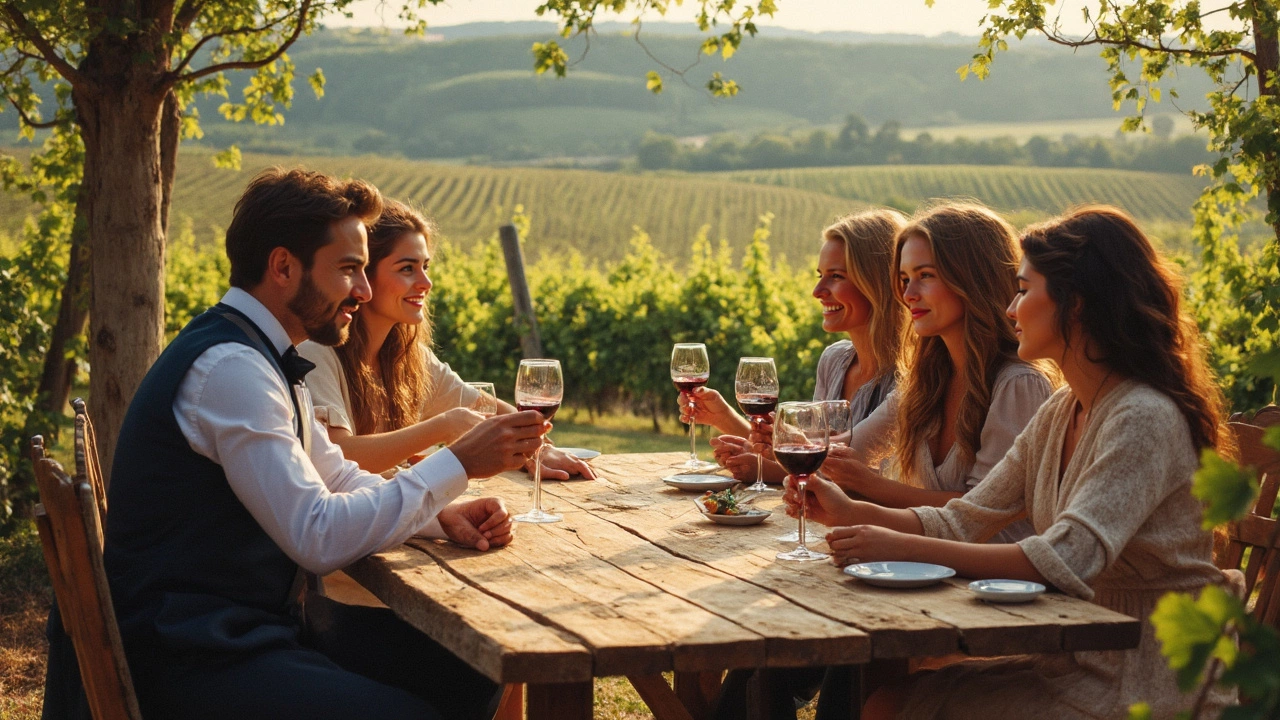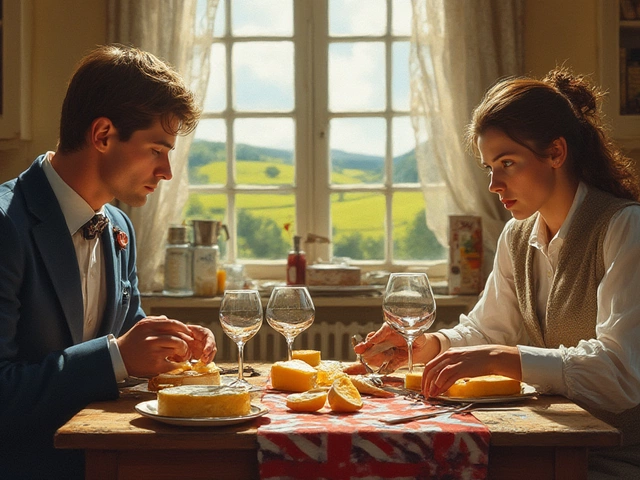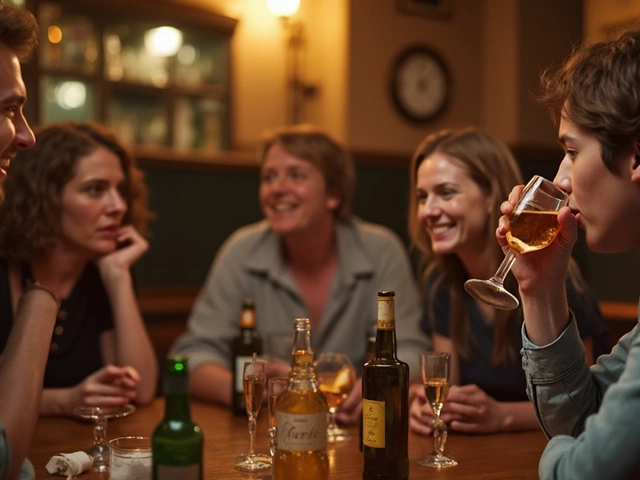Picture this: you're surrounded by picturesque vineyards, holding a glass of wine as the sun sets behind the rolling hills. Sounds like a dream, right? But here's the catch – wine tasting isn't just about drinking as much wine as you can handle. It's an art, a skill, and, most importantly, a lesson in moderation.
First off, wine tasting is more about savoring the different flavors and aromas than getting sloshed. Think of it as a chance to learn and appreciate the complex profiles each wine offers. You take a sip, swish it around, and maybe even spit. That’s right, spitting is a thing in wine tasting. It's a handy trick to keep your head clear so you can keep enjoying your day without feeling too buzzy.
A good tip? Pace yourself. Take it slow and enjoy each pour. Wine festivals and tastings usually offer small servings, making it easier to pace yourself naturally. Plus, remember – it’s okay to dump what you don’t finish. No one’s going to judge you for that.
- The Art of Tasting vs. Drinking
- Tips for Pacing Yourself
- Why Moderation Matters
- How to Enjoy the Experience
- Common Wine Tasting Mistakes
The Art of Tasting vs. Drinking
So, what’s the deal with wine tasting that makes it different from just drinking wine? Well, when you’re tasting, you’re not just throwing back a glass like you might do with a Friday night bottle in front of Netflix. Tasting is more about exploring and discovering. It’s about really taking a moment to focus on the wine in your glass.
Start by checking out the color. Is it bright and clear, or a bit cloudy? The color can tell you loads about what’s in store. After you’ve had a look, give it a swirl. This isn’t just for show—it helps release the wine's aromas. Stick your nose in and take a good whiff. Smelling wine clues you into its flavor profile.
The Sip and Swish
Here comes the best part – the actual tasting. Take a small sip, letting it spread across your tongue. You’re searching for things like sweetness, acidity, and tannins. Try to pinpoint different flavors—fruity, spicy, earthy—and how they balance. Don’t rush; let it linger. And here’s another insider tip: practice the art of the swish and spit. Spitting during tastings keeps your senses sharp and saves room for more samples.
If you’re at a tasting event, don’t be shy about asking questions or taking notes. Dive into the story behind the wine. Most winemakers love to share anecdotes about the process or how particular wines came to be. This connection can deepen your understanding and appreciation.
- Sight: Observe the color and clarity
- Smell: Swirl and then smell for aromas
- Taste: Sip, savor, and identify flavors
- Spit: Keeps your palate ready for more
Remember, wine tasting is as much about enjoying the journey as the destination. So slow down, savor each sip, and appreciate the strides and craft that go into each bottle you try.
Tips for Pacing Yourself
When you dive into the world of wine tasting, it's easy to get carried away. But don't worry, there are some simple tricks to make sure you enjoy every drop without going overboard.
Mind Your Sips
Start with small sips. It's not about guzzling; it's about tasting. Take your time to let each sip linger. Feel the flavors, let your senses fully absorb the experience. Remember, you'll get more out of the tasting if you're present and attentive.
Spitting's Not Rude
Yeah, spitting might feel strange at first, but it's totally normal in the wine tasting scene. This is especially useful if you’re trying a variety of wines. Taste, savor, and then spit – that way you can sample many wines without getting tipsy too quickly.
Hydration is Key
Keep water handy. Cleanse your palate between different wines and keep hydrated. This helps maintain your stamina, ensuring you stay refreshed and can appreciate each new tasting.
Keep Track
It's super helpful to take notes. Jot down what you taste and how each wine feels. Not only does this help you remember your favorites later, but it also forces you to slow down and think about what you're drinking.
- Wine tasting events often serve small pours, typically about 1-2 ounces. Make use of comfortably small tastings to moderate yourself.
- Plan to eat! Snacks or meals help absorb alcohol and keep you grounded.
- Set a limit before you start. Decide how many wines you'll try and stick to it.
Following these tips can turn a potentially overwhelming experience into a fun and memorable day. It's all about enjoying what you're sipping and keeping it chill.
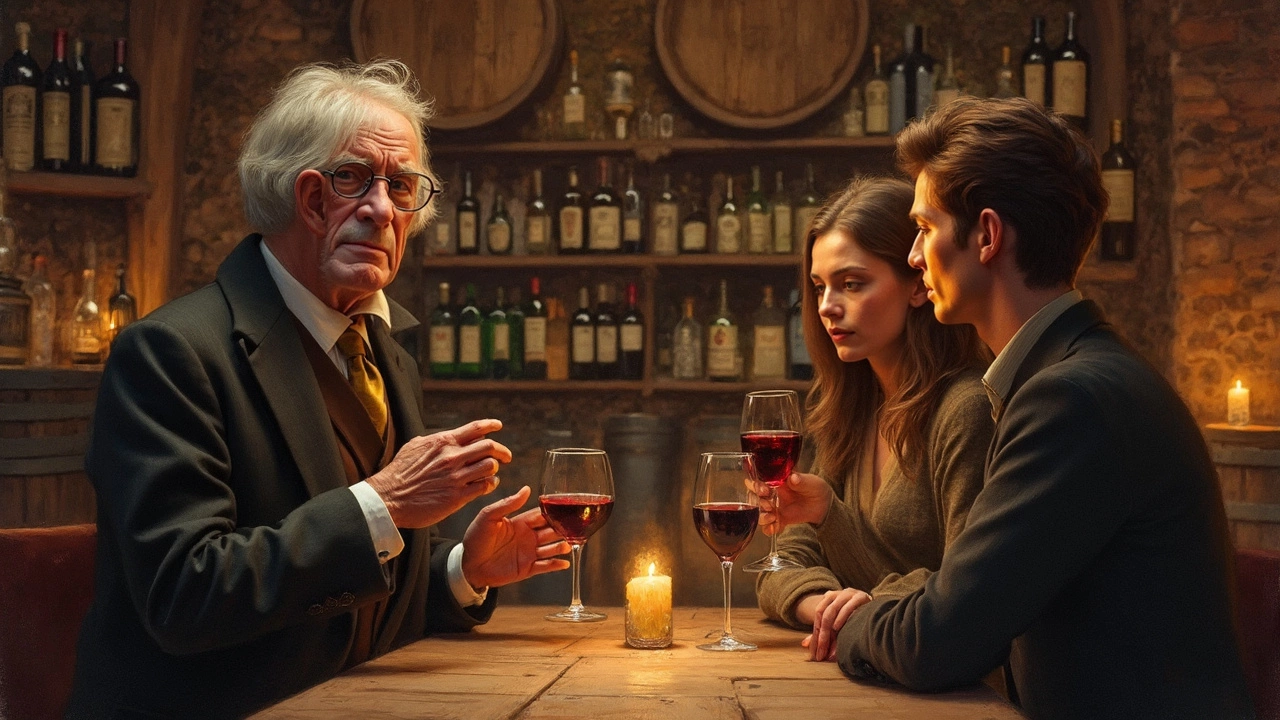
Why Moderation Matters
So, why does moderation in wine tasting matter so much? Well, aside from the obvious reasons like wanting to remember your day, there's more to it. Let's dive into why holding back on that extra pour can actually make your experience more enjoyable.
Savor the Experience
Tasting is about notes, flavors, and enjoying the journey a glass of wine takes you on. Drinking less means you’re more likely to pick up on those subtle hints of oak or the fruity undertones that make each wine unique. Plus, your taste buds stay sharper longer, and you’re way more likely to appreciate the craftsmanship in every bottle.
Avoid Wine Fatigue
Ever heard of palate fatigue? It’s when your taste buds get tired and everything starts tasting the same. It’s pretty common in wine tasting for those who don't pace themselves. Keeping it moderate helps to avoid this, ensuring each sip remains exciting and delicious.
Your Head Will Thank You
No one plans to leave a wine tasting with a headache, but it does happen. Drinking in moderation can help you steer clear of that end-of-day slump. Hydrate well, balance wine with water, and you’ll likely feel a lot better by the end of your tasting adventure.
| Aspect | Benefits of Moderation |
|---|---|
| Flavor Appreciation | Catch nuanced flavors without numbing your taste buds. |
| Health | Avoid feeling sluggish and maintain energy levels for the entire day. |
| Focus | Keep your mind sharp to remember what you loved most about each wine. |
So, What's the Game Plan?
If you're looking to enjoy every drop without overdoing it, remember these tips:
- Use the spit bucket when needed – that's what it's there for.
- Drink plenty of water between tastings to stay hydrated.
- Snack regularly – bread and cheese are your best friends at tastings.
- Take notes so you can remember your favorites without relying on your buzzed memory.
In the end, moderation turns the tasting into an educational and pleasurable experience, keeping things light-hearted and fun!
How to Enjoy the Experience
Let's face it—wine tasting can be a little intimidating if you're new to it. But don't worry, you have nothing to fear. Here’s how you can make the most of your time and truly enjoy the wine tasting experience.
Start with the Basics
Before you even get to the wine, start by soaking in the ambiance. Touring the vineyard if there's one nearby can set the scene. Learn a bit about the history of the place. Not only does it enhance your experience, but also gives you stories to tell when you’re pouring the same wine back home.The Tasting Process
When it's time to taste, there’s a basic rule of thumb — see, swirl, sniff, sip, and savor. Start by looking at the wine's color and clarity. Swirl the glass gently to release the aromas. Then, take a sniff and try to catch those initial scents. Finally, sip and let it linger in your mouth to identify different notes.Knowing what to look out for can be a game-changer. Generally, white wines have notes of citrus and floral, while reds might remind you of berries or spices. Don’t rush it. Discussing your thoughts with friends or hosts is half the fun.
Pair It Right
Many places offer light snacks or cheese to pair with the wines. Pay attention to pairings, as the right food can enhance a wine's flavor profile. A general tip? White wines go well with lighter dishes like fish, while reds complement heartier meals like steaks.Stay Open-minded
Even if you’re a die-hard red or white person, it won’t hurt to be open to trying new varieties. You might be surprised by what tickles your palate. Remember, wine tasting is as much about trying new things as it is about sipping what you love.And hey, if you’re ever unsure about what you’ve tried, don't hesitate to take notes. A simple jot down on your phone or a notebook can help you remember which wines you liked—useful when you're staring at the endless options in a store.
Enjoying the wine tasting experience isn't just about the wine. It's about the people you're with, the stories you hear, and the memories you make along the way.
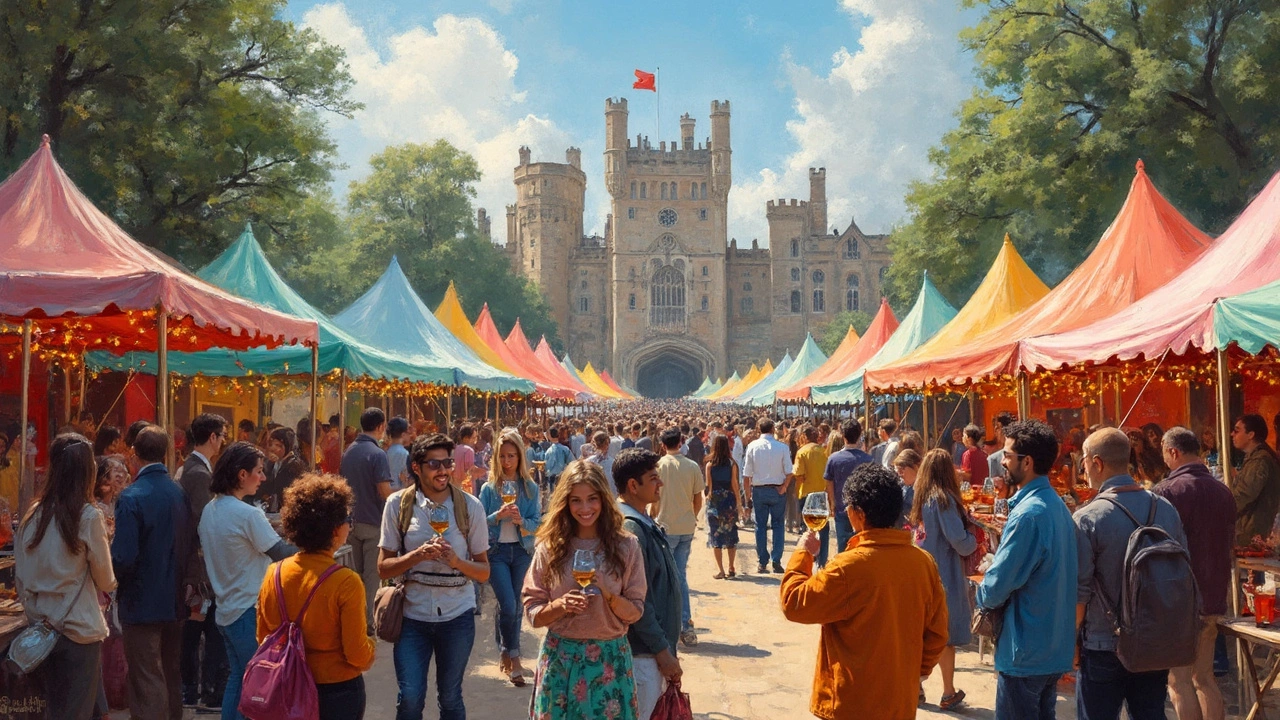
Common Wine Tasting Mistakes
Alright, let’s jump into some things folks often get wrong at wine tastings. It's all about learning, right? And having a heads-up on what not to do can elevate your experience from good to amazing.
Not Spitting or Dumping
First things first, don’t feel awkward about spitting. It's standard at every wine tasting. This isn’t just what seasoned tasters do to keep their wits about them; it's smart. Those little sips can add up, especially if you're planning to taste more than a few wines.
Skipping Water and Food
Missing out on water breaks or not nibbling on some snacks between sips is a rookie mistake. Not only does it refresh your palate, but it keeps your senses sharp and health in check. Plus, staying hydrated is key to ensuring you can pace yourself effectively the whole session.
Ignoring Aromas
A lot of us forget to take a whiff before sipping. Smelling is a big part of wine tasting because it’s part of what makes each wine unique. Don’t just dive into sipping without giving it a good sniff. You might catch a hint of something you love!
Focusing Only on Old Wines
It's tempting to stick to wines with more age, but it’s a mistake to overlook young wines. Some freshly bottled wines offer vibrant flavors that older bottles can’t match. So, don’t limit yourself to a particular age; variety is the spice of life.
Sticking to One Type
Trying only reds or whites and ignoring the other? That’s a missed opportunity. Exploring a mix can reveal unexpected favorites and broaden your wine horizon.
Getting a grasp on these points can make a real difference. Remember, wine tasting is more than just sipping wine. It's an experience, an exploration of flavor, and a chance to really get to know what you love.
